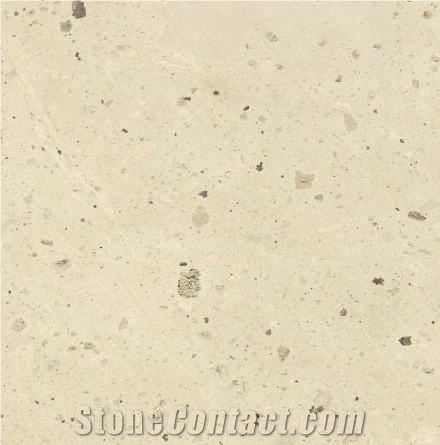Ratka Rhyolite
Order Now
About
Material Type: Rhyolite
Origin: Hungary
(Ratka, Szerencs, Northern Hungary)
Hungary
(Ratka, Szerencs, Northern Hungary)
 Hungary
(Ratka, Szerencs, Northern Hungary)
Hungary
(Ratka, Szerencs, Northern Hungary)
Priamry Color(s): Beige
Recommended Usage:Building Ornaments, Flagstone,Coping, Pavers, Slabs, Sculptures, Window Sills, Stairs
Finishing Surface:Sawn cut, Honed, Natural, Split, river worn, feature rocks
Additional Names:Riolit Ratka,Ratka Beige Rhyolite,Riolit Mezoedomb,Riolit Mezodomb,Zeolit Rbz,Tokajer Vulkan Tuff
Description
Volcanic tufa, porous volcanic rock, Garnet-gneiss, migmatitic volcanic rock
show more
hide
FAQ
Ask a Question

Can Hungary's Ratka Rhyolite be used in landscaping?
Yes, Hungarys Ratka Rhyolite can be used in landscaping. Ratka Rhyolite is a type of volcanic rock that is known for its unique colors and textures, typically ranging from reddish-brown to gray and featuring a speckled or banded appearance. It is often used as decorative stone in landscaping projects such as pathways, garden edging, retaining walls, and rock gardens.
The vibrant colors and interesting patterns of Ratka Rhyolite can add visual interest and texture to outdoor spaces. Its durability and resistance to weathering make it suitable for long-lasting landscaping installations. Additionally, it can be cut or shaped into different sizes and forms to suit specific design preferences.
As with any landscaping material, it is important to consider the local environment and climate when using Ratka Rhyolite to ensure its suitability for the specific region.
show more
hide

Can Hungary's Ratka Rhyolite be used in a bathroom?
Yes, Hungarys Ratka Rhyolite can be used in a bathroom. Rhyolite is a type of volcanic rock known for its durability and resistance to water, making it suitable for various applications, including bathroom walls, floors, countertops, and shower backsplashes. Its natural beauty and unique textures can add a stylish and contemporary look to a bathroom design while providing durability and functionality. However, its always recommended to consult with a professional or supplier to ensure its suitability for specific bathroom uses and to understand any required sealing or maintenance processes.
show more
hide

Can Hungary's Ratka Rhyolite be used exterior applications in very rainy climates?
Ratka Rhyolite is a type of stone found in Hungary that is commonly used for various applications such as flooring, wall cladding, and countertops. While it is a durable and hardy material, its suitability for exterior applications in very rainy climates may depend on several factors.
1. Porosity: Ratka Rhyolite is a volcanic rock with variable porosity. If the stone has a high porosity, it may absorb water, leading to potential issues in very rainy climates. Water absorption can cause the stone to weaken, crack, or stain over time.
2. Freeze-thaw cycles: In regions with very rainy climates, freezing temperatures can exacerbate the effects of moisture on stone surfaces. If water is absorbed into the stone and then freezes, it can cause the material to expand and contract, leading to cracking or degradation.
3. Sealing: To enhance the stones resistance to moisture and staining, it is typical to apply a sealant on Ratka Rhyolite. This can help mitigate water absorption to some extent. However, it is essential to select a high-quality sealant and periodically reapply it to ensure optimal protection.
4. Maintenance: Regular cleaning and maintenance are crucial for any exterior stone application, particularly in rainy climates. Standing water or debris can expedite the stones deterioration, so it is important to keep the surface free from moisture and maintain proper drainage.
Considering these factors, Ratka Rhyolite may be suitable for exterior applications in very rainy climates if the stone is of low porosity, properly sealed, and maintained regularly. However, it is recommended to consult with a local stone professional or geologist who can assess the specific characteristics of Ratka Rhyolite available in your area and provide tailored advice based on the climate conditions.
show more
hide

Is Hungary's Ratka Rhyolite an expensive stone?
I cannot find the current market prices of Ratka Rhyolite. However, the price of a stone depends on various factors, such as rarity, quality, and demand. Hence, one would need to check with a trusted source to determine the price of Ratka Rhyolite.
show more
hide

How thick is Hungary's Ratka Rhyolite slabs?
The thickness of Hungarys Ratka Rhyolite slabs can vary depending on the specific quarry and production standards. However, in general, Rhyolite slabs are commonly available in thicknesses ranging from 2 centimeters (0.79 inches) to 3 centimeters (1.18 inches).
show more
hide

What grade is Hungary's Ratka Rhyolite?
Hungarys Ratka Rhyolite is not graded in terms of educational grading system. Instead, Ratka Rhyolite is a type of igneous rock found in Ratka, Hungary.
show more
hide

Are there color variations of Hungary's Ratka Rhyolite?
Yes, there are color variations of Hungarys Ratka Rhyolite. Ratka Rhyolite typically exhibits a range of colors including shades of red, brown, orange, gray, and cream. The specific colors and patterns can vary depending on the particular location within Hungary where the stone is quarried. Some specimens may have more dominant reddish tones, while others may feature a mix of different colors. Overall, the color variations give Ratka Rhyolite its unique and attractive appearance.
show more
hide

What is the coefficient of friction of Pickled Hungary's Ratka Rhyolite tiles?
I do not have access to information about the coefficient of friction of Pickled Hungarys Ratka Rhyolite tiles. It is best to contact the manufacturer or supplier for this information.
show more
hide
Product & Prices
Post Your Request
*From:
*Request:
The request includes: 1. surface finished, size 2. quantity required
Send







